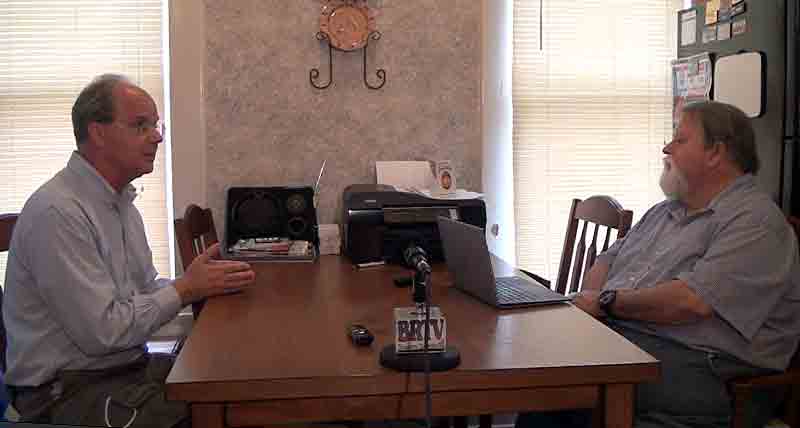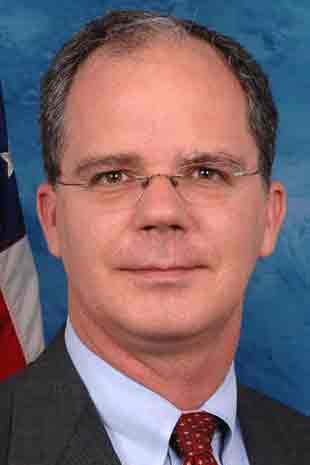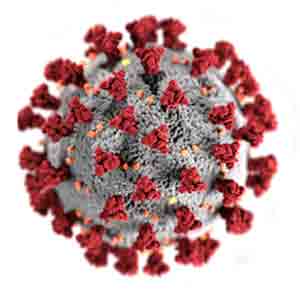Congressman visits county to discuss federal COVID response, vaccine progress

By JIM BROOKS
Nelson County Gazette / WBRT Radio
Friday, Aug. 28, 2020 — COVID-19 remains the top concern of the people of Kentucky’s Second Congressional District, according to Congressman Brett Guthrie.
Guthrie stopped by the WBRT studios in Bardstown for an interview Thursday afternoon.

Due to the COVID-19 restrictions on the size of gatherings, Guthrie said this August has been very different than most. He can only meet with constituents in small groups, and then they must follow the CDC guidelines for staying safe, including masks and social distancing.
And since early this year, he said that most of his time has been spent working on COVID-19 and trying to do what his office can to assist constituents trying to cope with the effects of the pandemic, including the lengthy shutdown of the economy.
“My focus has been on COVID,” he explained. “That’s the number one issue to people. The main question I hear from everybody is ‘When are we going to get back to normal?’ “
“My answer to that is I don’t know what normal is going to be. I think we’ll be close to being back to the normal we once had once we get a vaccine for COVID.”
Three different companies are now in the testing stages on their own COVID vaccines, he said. He said he was confident that a vaccine will be fully tested before the end of the year and most likely as early as this fall.
The three companies’ vaccines have already been proving in Stage 2 tests, and are being tested now in a final stage that provides a larger testing sample.
While the approval by the FDA is an established, non-political process, Guthrie said the vaccines have become “the elephant in the room” politically. There’s a chance one or more of the vaccines will complete testing by the Nov. 3rd presidential election.
“If it happens before Nov. 3rd, you have a group of people who will say it was rushed, and if it happens after Nov. 3rd, you have another group of people who will say it was withhed.”
Regardless of the date a vaccine is approved, Gurthrie stressed that an approval will mean the vaccine has met the FDA’s strict testing criteria, and that is has been proven to be safe and effective.
The process to approve this vaccine is the same process used for testing all other vaccines, and the American people can be assured nothing has been rushed or delayed.

Rather than wait for FDA approval prior to manufacturing a vaccine, President Trump has approved the manufacture of the vaccines while still in testing with the government’s pledge to purchase $1 billion worth of the vaccine.
Guthrie said people ask him if it is a waste of money to promise to buy $1 billion worth of a vaccine that hasn’t completed testing.
No, he explained. The government has already spent $3 trillion on COVID relief, and spending $1 billion on the early production of vaccines means that when they are approved, distribution can ramp up quickly.
“The worst thing in the world is to have a vaccine approved, and then you have to wait to manufacture it,” he said.
COVID TESTING IMPROVING. Guthrie said a new COVID testing was just approved that will make getting tested for COVID as easy as a pregnancy test.
“You’ll still need to go to the doctor to get swabbed, but it will be instant testing,” he said. That test is due to be released next month.
COVID SECOND WAVE? Guthrie is the ranking Republican on House Energy and Commerce Committee’s Oversight and Investigations Subcommittee, which recently issued a report as part of the commitee’s “Second Wave Project,” which includes recommendations for addressing a possible second wave of COVID in the fall.
The recommendations are essentially lessons learned from the country’s first round this spring of dealing with COVID. For example, the national stockpile of personal protective equipment (PPE) was inadequate to meet the national demand for it when COVID became widespread, leading to shortages in areas where COVID was widespread.
When a vaccine becomes available, Guthrie said it should be administered by priority — for example, front-line workers, first-responders, and then also given to those high-risk individuals, like the elderly with comorbidities that make them more like to develop severe COVID symptoms.
To Guthrie, protecting those adults most vulnerable to the virus is an critical step to getting our schools open for traditional in-person instruction.
While school-age children are less likely to experience severe symptoms from COVID, the danger is that they can take the virus to family members who are at great risk. Once the at-risk population receive the vaccine, it will greatly reduce the chances that they could get the virus through contact with a family member.
Despite the continuing numbers of new COVID cases, Guthrie said that he had not heard of any hospital in Kentucky that was overwhelmed by COVID patients; there are plenty of ICU beds and ventilators still available.
This is because the medical community continues to improve its treatment of those who get COVID. “If you get sick enough to go to the hospital, we have far better treament methods now than we did in March,” he said.
Guthrie said he went back to Washington last weekend for the House vote on the U.S. Postal Service. Due to the COVID restrictions, House members couldn’t all be in the chambers at one time to vote, and the gallery — the area where the public an come and observe the House proceedings — was empty.
“We need to get back to being open again,” he said. “Having people sitting there watching you is the ultimate in transparency, and we need to get back to that.”
-30-






